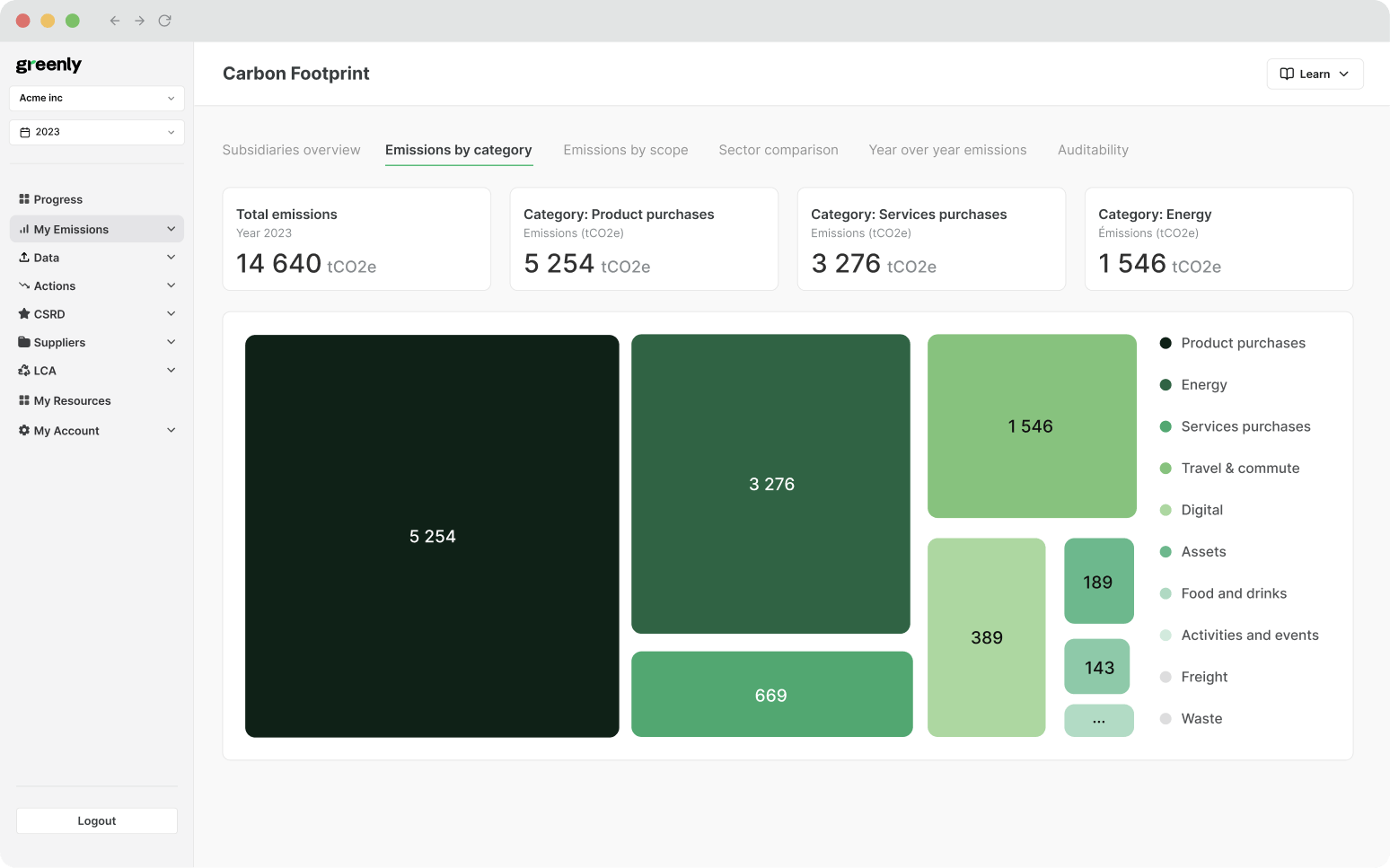
What are the 3 Pillars of Corporate Sustainability?
In this article, we'll explore what the 3 pillars of corporate responsibility are, why they're important, and how businesses can turn them into practical action.
ESG / CSR
Industries



In 2025, companies are more cognizant of the various sustainability and eco-friendly practices they should be implementing – and the certifications that they should aim to receive as a result of their newfound environmental efforts, such as a Green Seal certification.
From the ISO series, PAS series, and more – it can be hard to determine which environmental certification is the right one for your business.
What is Green Seal, why is it important, and how could it prove beneficial to your organization?
In this article, we’ll discuss the main goals of Green Seal, how acquiring a Green Seal certification could be beneficial, and the process to successfully acquire a certification from Green Seal.
Green Seal is a nonprofit organization which works worldwide to safeguard the environment and human health by encouraging safer and more sustainable products and services to be sold.
If you’ve ever wondered who started the trends of eco-labeling, you can stop looking for the answer here – this notion started with Green Seal.
Since 1989, Green Seal has been working to implement more stringent standards for sustainability, human health, and product efficiency.
As a whole, Green Seal started with the incentive to follow through on their belief that safe and eco-friendly products should be the norm.
As of today, over 30,000 products, services, and accommodations are Green Seal certified – some of which are from large, recognizable companies and institutions around the world such as Marriott, Hilton, and Harvard University.
Green Seal believes that safe and eco-friendly products should be the norm.
The overview cards below will reveal some examples of companies and products that have been Green Seal Certified:
Many household cleaners have earned Green Seal certification for using safer ingredients and reducing toxic chemical exposure.
Green Seal Certified hotels reduce energy use, water consumption, and waste while offering guests a more sustainable stay.
Recycled copy paper, napkins, and tissue products are Green Seal Certified for reducing deforestation and waste.
Restaurants and cafeterias that follow sustainable practices can earn Green Seal certification for healthier dining experiences.
Certified hand soaps avoid harmful chemicals and are biodegradable, helping protect water quality.
Green Seal Certified offices meet high sustainability standards for cleaning, maintenance, and energy efficiency.
In order to achieve their mission and spread the word, Green Seal has made its own certification – referred to as the Green Seal certification. This continues to drive Green Seal’s main mission, as any company looking to acquire a Green Seal certification must undergo a rigorous process to determine if they qualify for the prestigious certification – and ultimately elicits environmental change for the better.
However, the primary purpose of motivating other entities to acquire a Green Seal certification is to remind others of the reason why Green Seal was established in the first place – to inspire others to make sustainable and healthy practices the new norm.

Even though Green Seal may be most well-known as the pilot program for eco-friendly labeling, this nonprofit organization has much more in mind than just preventing greenwashing on your price tags when shopping.
Ultimately, the main goal of Green Seal certifications is to encourage more sustainability initiatives and for consumers to choose the more eco-friendly or energy efficient option when purchasing new products, services, or accommodation in the midst of climate change.
As greenwashing becomes an easy way to draw customers in without the need for any credentials or evidence of eco-friendly manufacturing or distribution, it is important for businesses and consumers alike to beware of potential greenwashing – and how organizations such as Green Seal work to avoid its potential negative consequences.
Green Seal is determined to create a more trustworthy market for all consumers, whether they are looking to buy a new bathroom cleaner or looking for accommodation near the Grand Canyon. This is done with the Green Seal certification, as in order to acquire it – a comprehensive analysis is required, and will ultimately ensure buyers that their purchases are healthy for both them and the planet.
The vertical timeline below will reveal how the process of acquiring a Green Seal certification works and helps organization in the long run:
Organization identifies the product or service category and confirms it fits a Green Seal standard (e.g., cleaning products, hotels, paper).
Team studies the exact Green Seal criteria — health, performance, packaging, and environmental requirements — and maps what evidence is needed.
Company submits an application with formulas/ingredients or operational data, safety sheets, labels, and proof of performance testing.
Green Seal evaluates documentation and may conduct on-site audits and product testing to verify compliance with the standard.
If gaps are found (e.g., ingredients, packaging, or procedures), the organization makes improvements and resubmits evidence for approval.
Upon meeting all criteria, the Green Seal mark is awarded. The certified product/service can display the label in marketing and on packaging.
Annual surveillance keeps standards active. Benefits include stronger buyer trust, eligibility for sustainable procurement, safer ingredients, cost savings from efficiency, and a verified sustainability claim.
Here is a breakdown of the areas where Green Seal is determined to make eco-friendly practices the new norm:
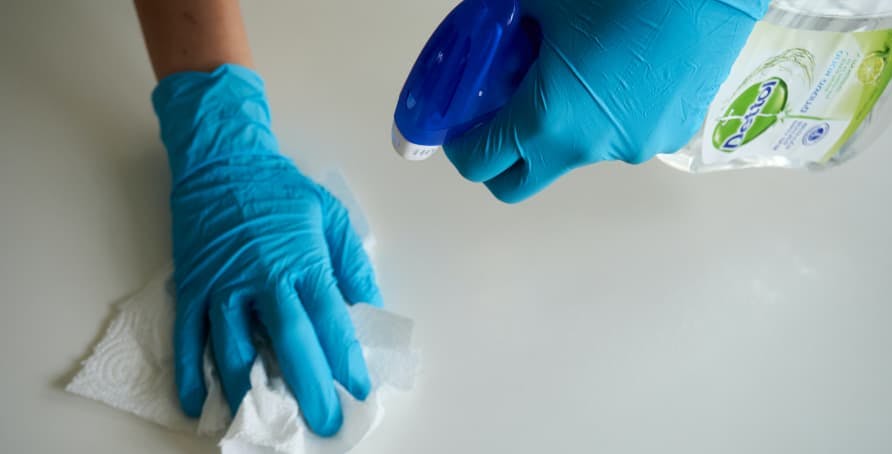
There are a multitude of benefits for companies, products, schools, and hotels that choose to aim for a Green Seal certification – such as boosting consumer trust and helping to avoid greenwashing.
For example, many college campuses seek to acquire a Green Seal certification not only to ensure parents of the mindful, healthy practices inside the classroom – but in the dorm rooms, too. Higher educational institutes such as the University of Maryland at College Park have acquired a Green-Seal 42 certification to demonstrate how serious they are about climate change and the impact it has on human health.
As a result, college campuses that choose to acquire a Green Seal certification can demonstrate their commitment to healthier and safer campuses – which is bound to bring parents peace of mind when they are sending their kids to college for the first time. Anyone can claim to be sustainable, but a certification provides indispensable proof.
The interactive flip cards below (move cursor over card to flip) will reveal why utilizing a Green Seal certification in densely populated areas such as a college town or campus could be widely beneficial for all:
Think about it this way: how many times when shopping have you actually stopped in the store to do a quick search about the brand you were about to purchase? Odds are, you were in a rush and didn’t have time to verify the eco-friendliness of the product you wanted to buy – and that’s where a certification from Green Seal comes into play.
Having a reputable, non-profit organization deem your desired product, service, hotel, or school as efficient, healthy, and eco-friendly can encourage people to choose more environmentally friendly brands with ease moving forward – which is another overarching benefit of acquiring a Green Seal certification, as your company will help spread the word on the importance of environmental reform.
Many of the benefits remain the same for cleaning products or services that acquire a Green Seal certification.
The drop down sections below will reveal the benefits of choosing Green Seal cleaning services for your cleaning services:
However, it is important to realize that the astounding benefit to receiving a Green Seal certification is the peace of mind that it will bring for consumers – regardless of what product or service is seeking the Green Seal certification.
Ultimately, choosing to acquire a Green Seal certification will result in less hesitation on behalf of your customers – as they will take comfort in knowing that their product, service, school, or accommodation of choice has been thoroughly inspected and verified by such a well-known, nonprofit organization.
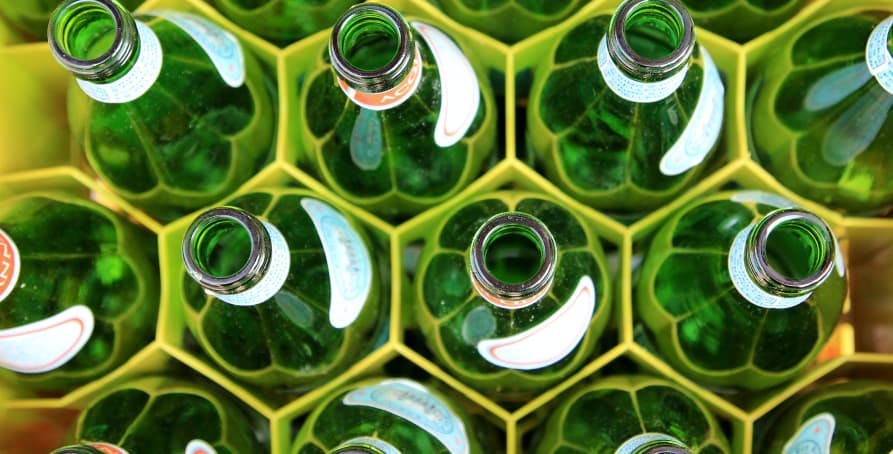
A certification from Green Seal isn’t the only environmentally friendly badge-of-honor that your business could be working towards receiving.
Well-known environmental certifications include:
Global standards ensuring quality, safety, and sustainability across industries.
Publicly Available Specifications that guide organizations on sustainability and safety practices.
Leadership in Energy & Environmental Design promotes green building standards worldwide.
Ensures products are grown and processed without harmful chemicals or GMOs.
Supports biodiversity, sustainable farming, and fair conditions for workers worldwide.
Guarantees ethical sourcing and fair wages for farmers, often tied to coffee and chocolate.
Here's a full breakdown of these different certifications:
The primary difference between a Green Seal certification and the other ones mentioned above is that a Green Seal certification is more garnered towards consumers – as the average, non-business owner or shopper is not going to see a product with an ISO or PAS certification.
The infographic below will break down an example ISO certification, ISO 14001, to demonstrate how it differs from a Green Seal certification.
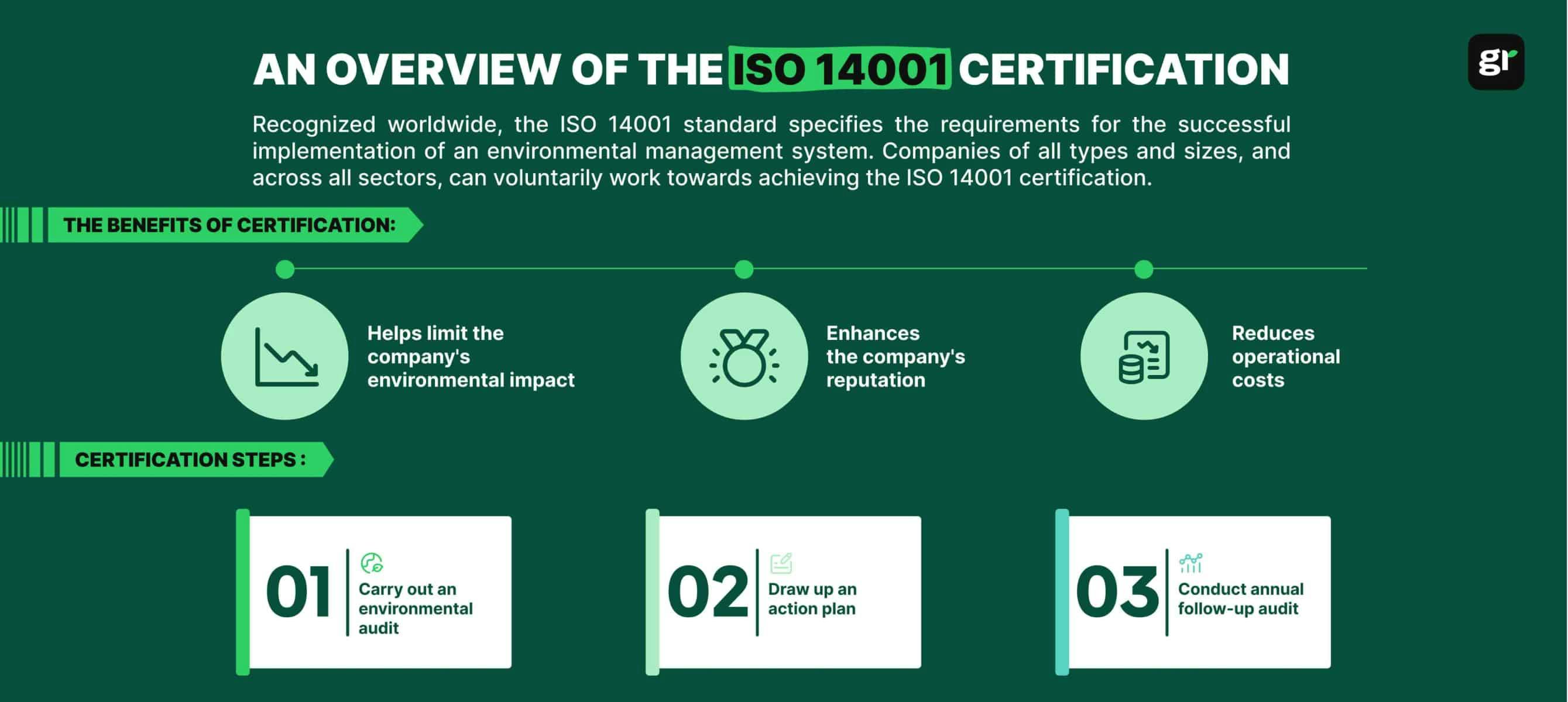

All of the above are good certifications for any company looking to become more sustainable to strive for, but if your company primarily focuses on selling products and services – a Green Seal certification or something similar may be right for you.
The three way battle cards below will break down the differences between a Green Seal, ISO, or PAS certification:

Similar to other green certifications, obtaining a Green Seal certification is no walk in the park – but once it is acquired, it could be a game changer for your business.
Green Seal certifications are only handed out once scientists and experts at Green Seal confirm that a company, product, or service is making a genuine effort to implement greener practices.
No, a Green Seal certification only adheres to a specific product as opposed to the entire company being certified. Therefore, it is important to remember that Green Seal does not certify entire companies, but rather individual products and services.
For instance, if Apple were to seek a Green Seal certification – they couldn’t get an umbrella certification for all of their products, but would instead need to request a Green Seal certification for one product at a time. This means that the iPhone, Macbook, and Apple Watch would each need to undergo an individual certification process.
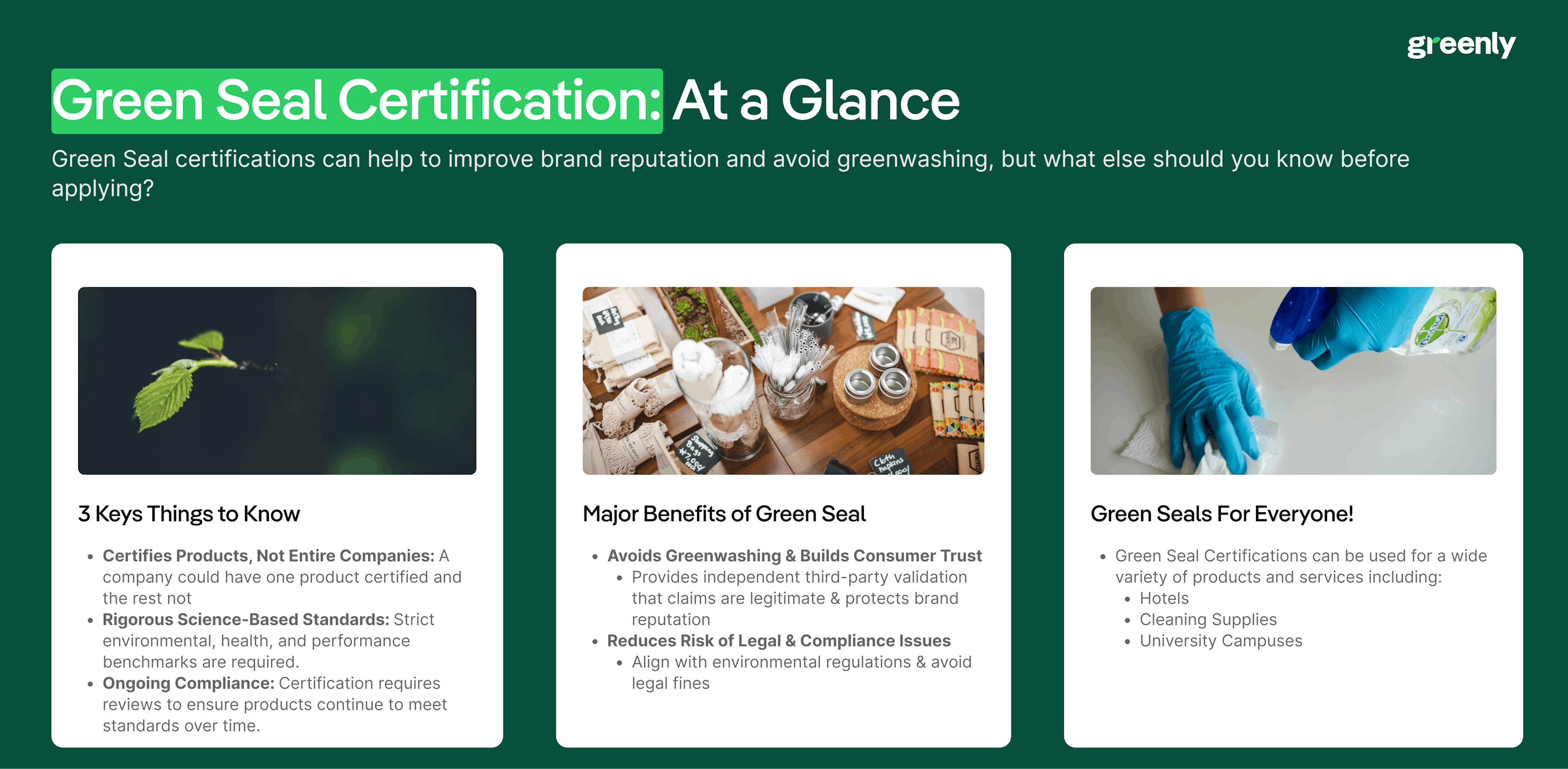

Before applying for a Green Seal certification, it is important to make sure your company has implemented clear goals and objectives towards environmental improvement – and that your organization is also up-to-date on any compulsory environmental legislation. Missing any of these preliminary steps could render your application for a Green Seal certification useless.
Here is the process for obtaining a Green Seal certification:
After filling out the application form on Green Seal’s official website, wait a few business days for guidance on how to proceed.
Once Green Seal contacts your company, you’ll submit documentation showing your current environmental standing. Requirements vary by the product or service you’re seeking to certify.
Approval typically takes 2–3 months. After certification, stay up to date with Green Seal standards—periodic assessments ensure continued compliance. If you remain compliant, your certification stays valid indefinitely.
Fees vary depending on the product or service being certified and the scope of review associated with your application.
Remember, any product or service from around the world can be certified by Green Seal!
If your company is looking to obtain a Green Seal certification, you can start the process by contacting Green Seal – either by phone or email, both of which are found on their contact page.
Ultimately, a Green Seal certification continues to be one of the most recognizable and reputable green certifications and eco-labels out there – and as climate change continues to take over our daily lives, the time to create change and acquire labels like these has never been more paramount.
If reading this article about the Green Seal Certification has made you interested in reducing your carbon emissions to further fight against climate change – Greenly can help you!
It can be difficult to know which certifications are best for your company, such as the Green Seal Certification, but don’t worry – Greenly is here to help! Click here to book a demo and get personalized expertise on which environmental certifications and programs are right for your company.
Greenly can help you make an environmental change for the better, starting with a carbon footprint assessment to know how much carbon emissions your company produces.
